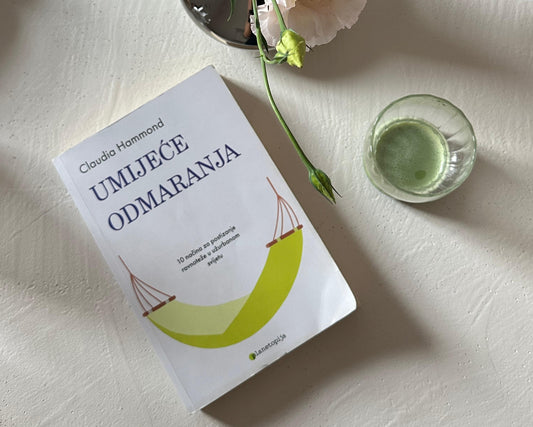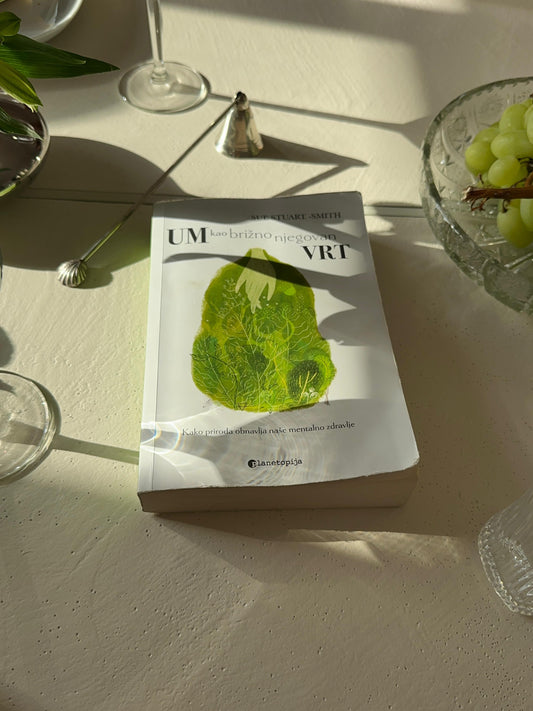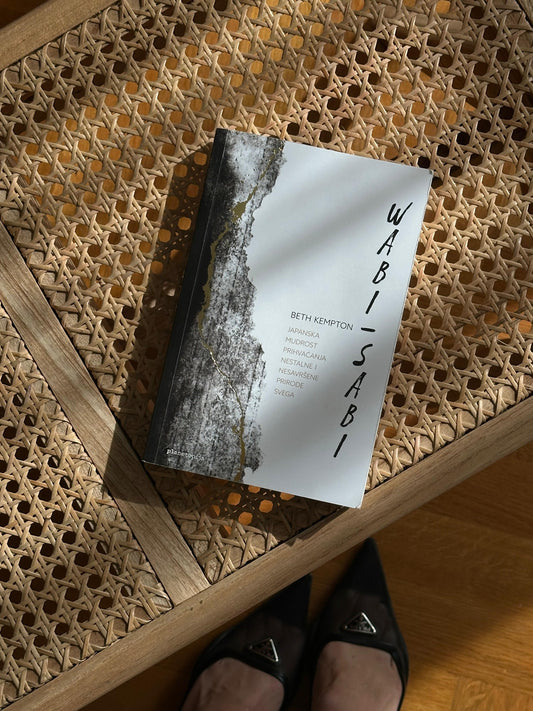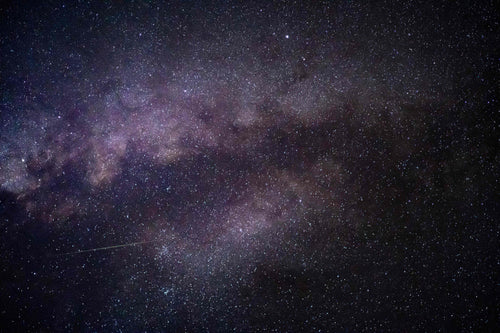The Book of Hope: What Does it Mean to Have Hope in a World Facing Constant Challenges?
Hope is a topic we recently discussed at our Materia Book Club meeting. In the company of inspiring women, we talked about the book The Book of Hope: Thoughts for Challenging Times. The book is a transcript of an inspiring conversation between Jane Goodall and Douglas Abrams. The main theme is hope in contemporary society.
What Does it Mean to Have Hope?
Jane Goodall emphasizes in the book that hope is not just passive optimism, but a deep strength that drives action. Hope, as Jane sees it, is not simply a belief that everything will turn out well. It is, above all, an active force. Hope guides us toward wise decisions aimed at preserving life on Earth. In doing so, we also preserve our own lives.
The book is a reminder that "True wisdom requires us to think with our heads but understand with our hearts." Without hope, humanity could get lost in its own chaos.

What attracted all the members of the Materia book club to Jane? Certainly, it is her incredible career and contribution to science. But what inspired us is the unbreakable hope in people and nature that Jane Goodall lives. That hope is woven into every page of this book.
Energetic Connection with Nature
All the members of the Materia Book Club agreed on one thing. The book is most inspiring in the way Jane Goodall moves through the world. The way she sees the wisdom of nature through the entire spectrum of existence, from humans to the cosmos. She sees an energy greater than our own. Our greatest contribution to that energy is the humility to recognize it and the ability to let it inspire us. This energy drives actions that fill our human lives with beauty and meaning.

Jane Goodall's indomitable spirit runs through the entire book. In addition to her four fundamental reasons for hope (The Amazing Human Intellect, The Resilience of Nature, The Power of Young People, and The Indomitable Human Spirit), I would add a fifth - people like Jane Goodall. They are the ones who, in a hotel in a multi-million city, can look out the window and see beneath the concrete our good earth. Imagine, instead of the bustle and noise of cars, the chirping of birds. Large trees that lower the temperature and clean the air we breathe. They are the people who, even in the greatest chaos, can see the ultimate well-being. Those who act to find a solution.
How Do Young People Bring Hope?
The Book of Hope was different for each of us. For some, it was a reminder of the power of young people. Today, we often criticize and marginalize them. It's a reminder that young people, in many cases, are the bearers of hope. They see the world in a braver and more moral way. They are the ones who want to correct our damage, and we should encourage them.
Our Role in Nature Conservation
For some of us, The Book of Hope was a call to reflect on parenting and the way we raise our children. Do we raise them to be brave and hopeful? Do they believe they can change the world? Or are we too protective? Do we give them enough freedom, which manifests through our boundless love? Here we came to an important reminder that true love implies complete freedom. If we truly love someone, we let them freely find their happiness, hoping that we are also part of that happiness. If we truly love life, we will let nature renew itself. A healthy interpersonal relationship implies love and freedom. A healthy life implies a healthy nature and a healthy planet.

"I too fight in my own way, and I too have that indomitable spirit."
One of the bravest members of the book club saw herself in Jane Goodall's indomitable spirit. She encouraged others to change their perspective. Her spirit was also indomitable. With courage, she said: "I too fight in my own way, and I too have that indomitable spirit."
The conversation prompted us to think about this. Everyday decisions and small steps can have major consequences. Every year, Jane goes to the Platte River to observe the migration of birds. We should also look for ways to connect with nature. Every observation, tree planting, or recycling helps to preserve our planet.
In this sense, hope is not an abstract concept. It is found in everyday gestures. Every action we take has value. Talking to friends about nature conservation. Planting plants in the garden. Supporting a local ecological initiative. Through her work, Jane has proven that hope is not passive. It is an active force that encourages us to do good for all.
The Power of Hope that Moves the World
For Jane Goodall, hope is a driving force - but not without action. Throughout her entire work and life, the idea that passively waiting for change does not bring results runs through. Jane calls us to engage with the world and make our contribution, no matter how small. Without this power, the world could collapse. Its own problems, such as climate change and social injustices, would bring it down.

As Jane said in the book: "If we lose hope, we lose the ability to act. Then we become observers, not participants in change."
This was also the moment when, in our Materia Book Club, we thought about how much the magnitude of the problems we face discourages us. But as Jane showed us, great changes begin with small steps.
Jane's Path to Self-Realization
When we look at Jane Goodall's life, it's hard not to admire her. We are delighted by her courage to follow her dreams at a time when women rarely ventured into science and fieldwork. As a young girl, Jane Goodall felt a strong calling - a desire to be in Africa and study animals. This calling was more than a desire for a career. It was an inner drive, almost a spiritual enlightenment. It directed her toward nature and animals.
After finishing secretarial school, fate took her to Kenya, where she met Dr. Louis Leakey, a well-known paleoanthropologist. Leakey recognized her potential. He hired her as a secretary. Then he enabled her to get involved in researching chimpanzees by Lake Tanganyika in Tanzania.

How Do Humans Fit into the Ecosystem of Life on Earth?
During this work, Jane came to a revolutionary discovery: chimpanzees use tools. David Greybeard, the chimpanzee she observed, used a twig to extract termites from a termite mound. This discovery redefined our notion of tool use. It was considered an exclusively human trait. This moment, as Jane often points out, changed our understanding of animals and ourselves.
"If chimpanzees are capable of these levels of intelligence," Jane said, "we must ask ourselves what this means for our uniqueness as a species." This philosophical reflection touches on the human dilemma. What makes us unique? How do we fit into the ecosystem of life on Earth?

It's Time to Reconnect with Ourselves
Often, looking back, we think about our own turning points in life. How many of us recognize those moments when life opens a door to self-realization? Maybe in childhood, we had a gift. We dreamed of achieving it. But over time, under the weight of daily obligations, we neglected it. Jane Goodall reminds us that it's time to reconnect with what fulfills us.
True Wisdom: Head and Heart in Unity
Jane Goodall leads us to a deep understanding. True wisdom is not just an accumulation of knowledge. Wisdom is the use of our intellect. It is understanding the consequences of our actions. But we also need to listen to our hearts. Today we often rely only on reason. We forget the importance of compassion. It leads us to the right moral decisions.
Jane writes: "Our evolution takes time. We will never realize our full human potential if our heads and hearts do not work together."
How often in life do we act only with our heads? We neglect intuition. It carries wisdom. How do we reconcile these two dimensions in a world that demands speed and rationalization?
"True wisdom," Jane writes, "requires us to think with our heads and understand with our hearts." Many problems today, from climate change to injustice, stem from short-term greed and a lack of empathy for future generations. Here we come to a deeper connection between personal development and the preservation of the planet.
Nature Teaches Us Resilience
The resilience of nature is another key element of Jane's message of hope. She reminds us that nature, despite destruction and pollution, has an incredible capacity for renewal. Jane often cites the example of the migration of sandhill cranes and snow geese in Nebraska. The birds still arrive every year. They come despite the pollution of the Platte River and the destruction of habitats.
"Despite the fact that we have polluted the river, despite the fact that the wetlands have been drained, the birds still come every year," Jane writes. Nature renews itself when we give it a chance. This is a lesson for all of us. We can apply it in our own lives.

The Power of Small Steps
Great things don't always have to be research in the wild. Finding time for yourself is also a great thing. Or sharing energy with others or simply getting out of bed with courage.
How to draw hope? Clear goals, realistic plans and faith in them can give meaning to any progress. Also, community support is important. After reading The Book of Hope, we asked ourselves: "What can we do to save the world? What can we do to save ourselves and those to whom we leave this world?"
We can all contribute. Our Materia book club decided to plant at least one tree. It will be a reminder of the importance of this book and the life that breathes in its sentences. It will be our reminder to act. And what are you doing to save the world? Have you become aware of your hope and awakened your courage? We can also save the world through small gestures. These are: respect for oneself, others, food, time and health.
Sometimes it's brave just to survive the day, smile at someone, or comfort someone with carefully chosen words. Every step, no matter how small, can be important. Opening our hearts to the gift we carry within us is the first step towards change - and it's never too late for that.
Jane teaches us that each of us is important and that we all have a role to play in preserving life on Earth. We have the power to change the world, but we must awaken hope within ourselves and see that it is possible.
"And that is something truly important: to help people understand that they are important as individuals. That everyone has a role to play. That they were born for a reason."
We can choose how we live our lives - will we be the ones who destroy nature or the ones who preserve it for the future? We hope that everyone who reads this book, and this text, will find the hope and determination to take at least one step towards preserving our planet. Whether it's planting a tree, reducing waste, or educating others about the importance of nature conservation, we can all contribute.












